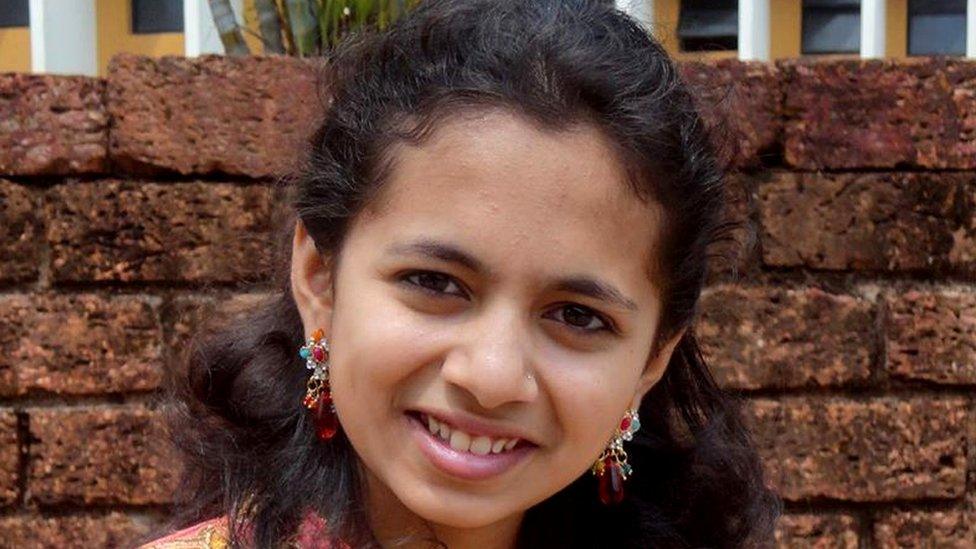100 Women 2016: The Central American women trying to get to the US
- Published
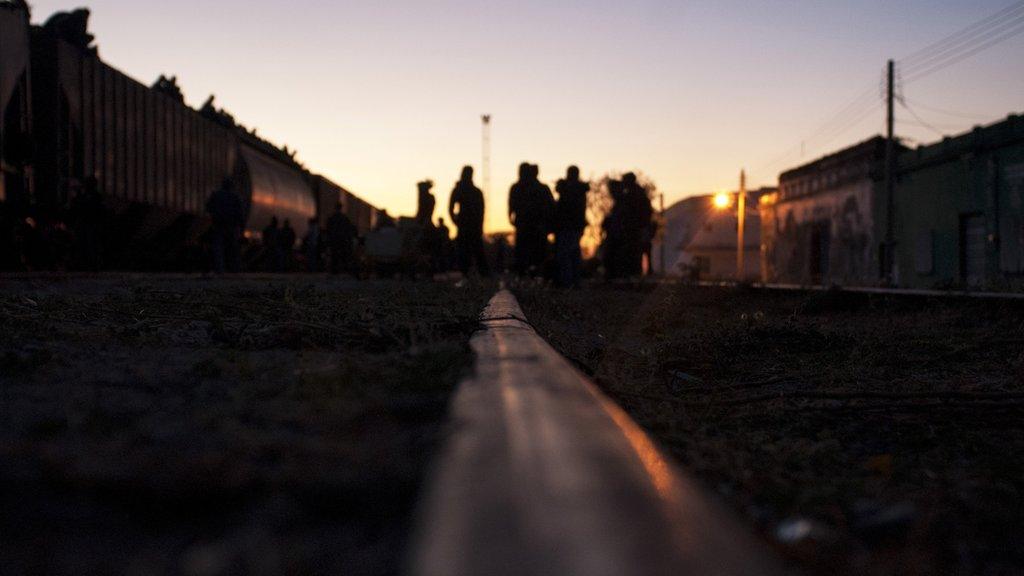
A group of Central Americans wait for a cargo train at Arriaga station, in Chiapas, southern Mexico, in 2011. “It's highly dangerous. There were regular assaults," Encarni Pindado remembers.
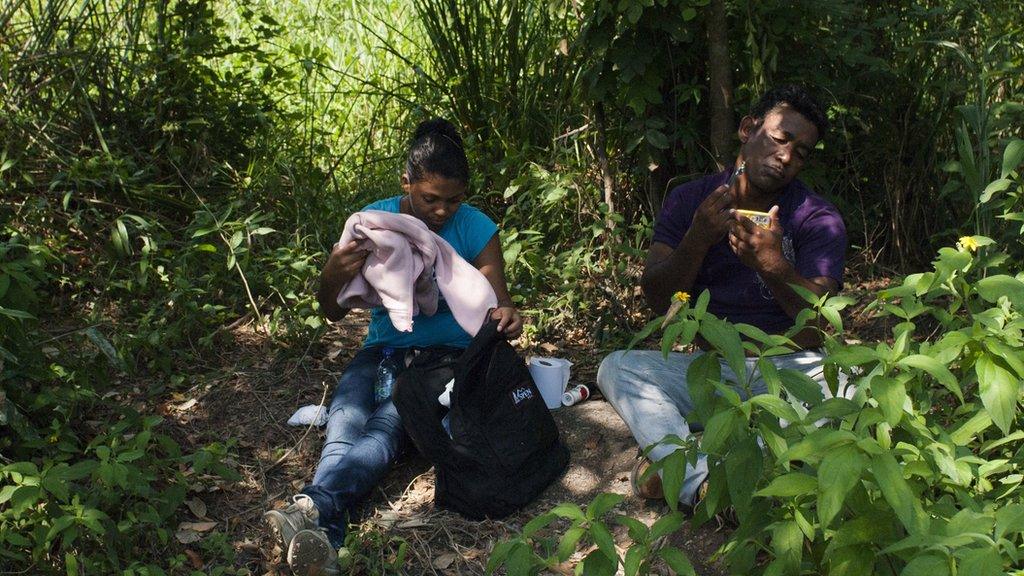
Honduran migrants in Guatemala, waiting to cross illegally to Mexico. “We were on a boat, but sometimes we had to walk along the bank. So they took the opportunity to have a wash.”
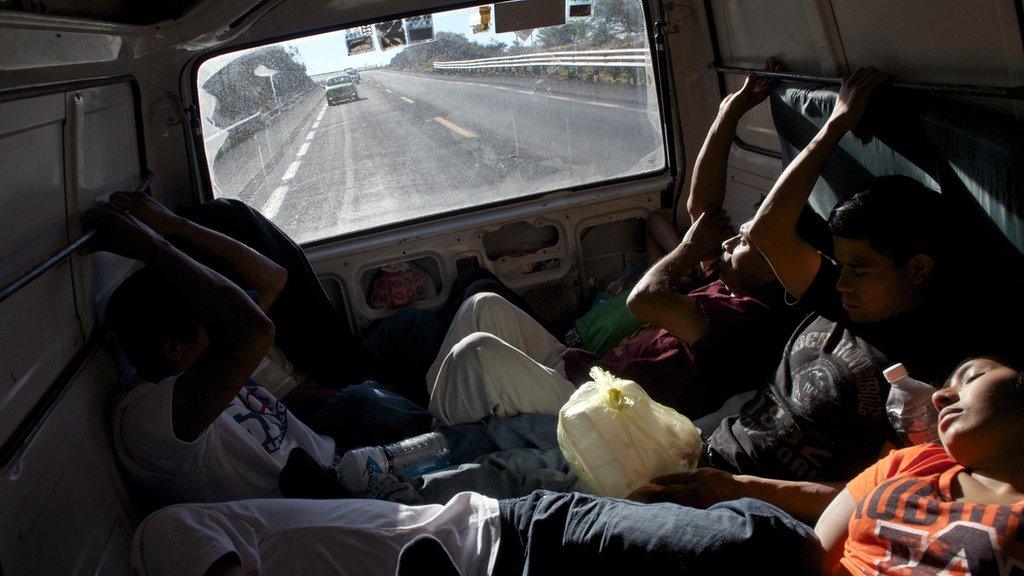
Some migrants travel by van, taking long detours to avoid detection. “There were 13 people in this van, some were throwing up. It was horrendous."
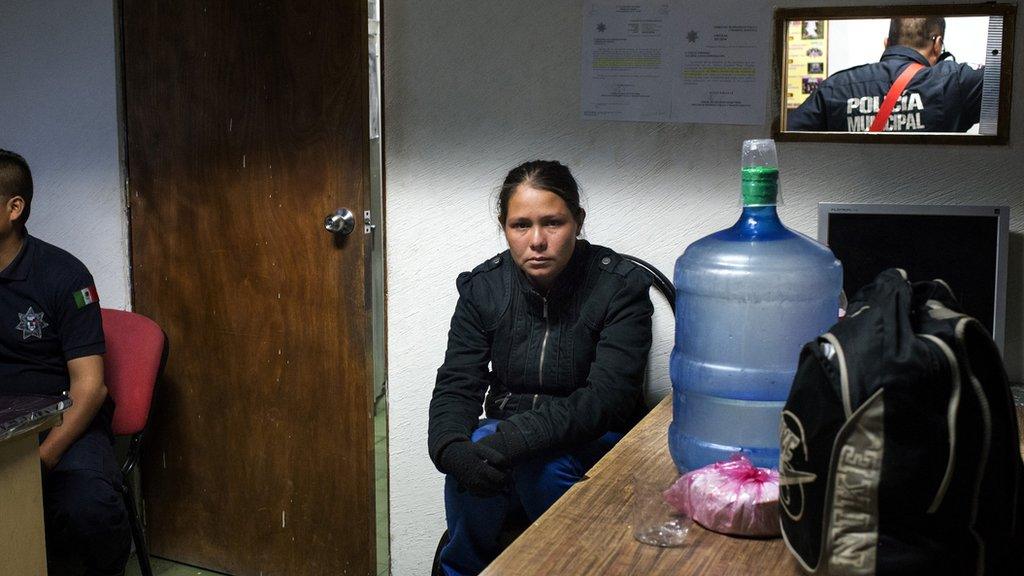
A Guatemalan woman just rescued by Mexican police. "Kidnappers take migrants hostage for money. If your family don’t pay and you are a woman, you are sold to traffickers. If you are a man, you are killed."
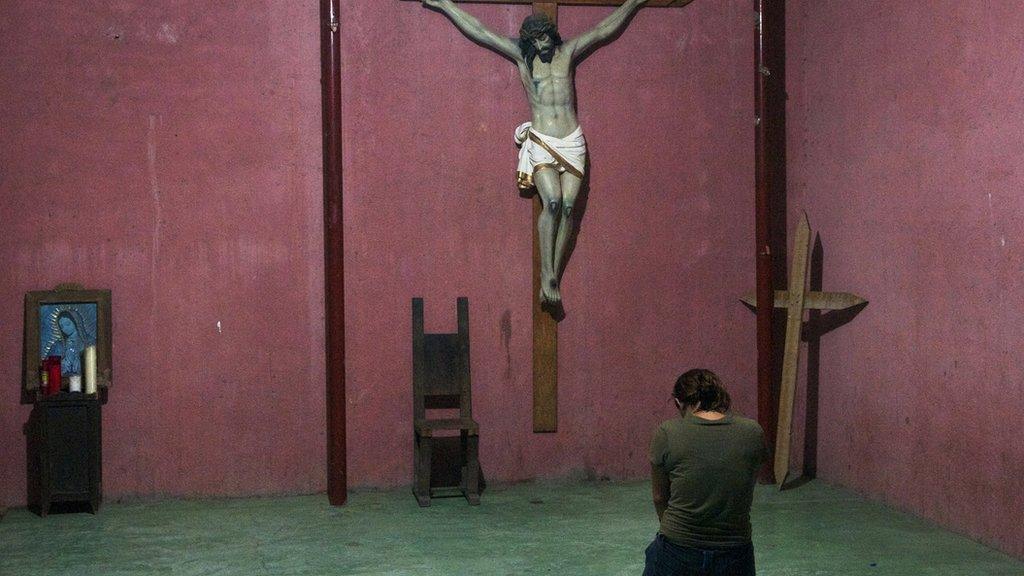
A Guatemalan girl prays at a refuge in Oaxaca, in Mexico. "She was given what they call 'an anti-Mexican injection' - a contraceptive, on the advice of friend, who was raped."
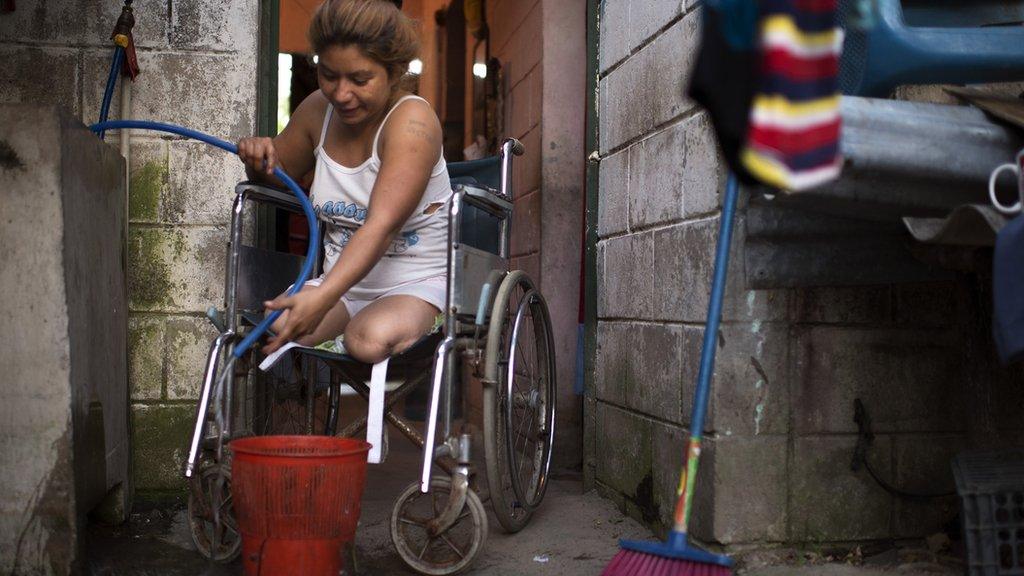
Mary is from El Salvador. A single mother with three children, she left the country in search of work, but lost her legs jumping off a train to avoid a checkpoint.
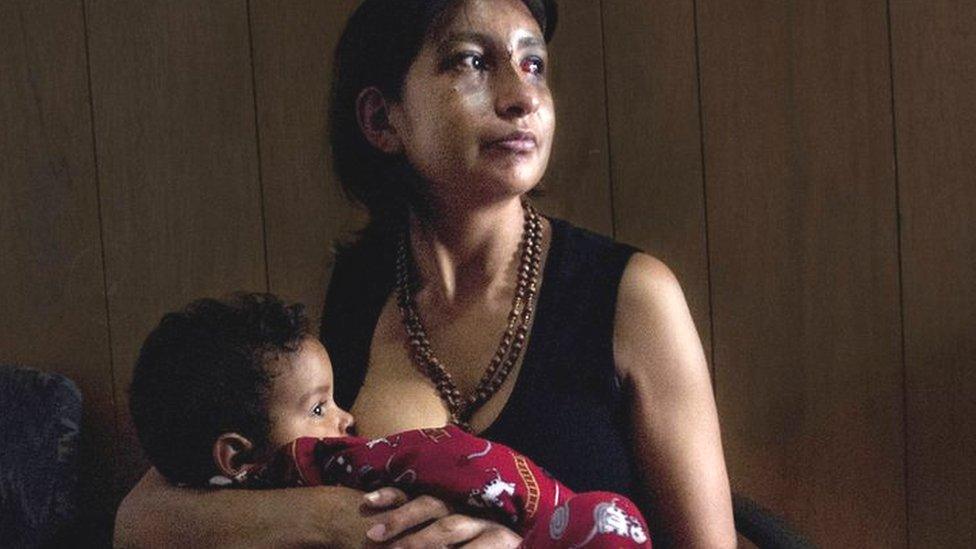
Juana was kidnapped by two men who offered to drive her across the US border. She was brutally beaten but they let her go after she pretended to lose her memory.
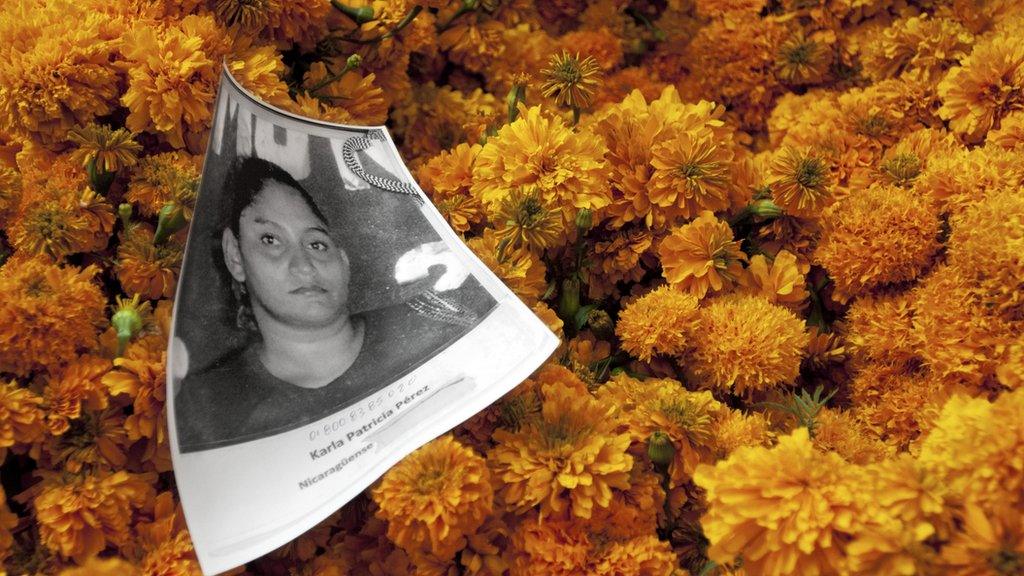
A photo is all that remains of some migrants. This one was left on a bunch of marigolds - Mexicans call them “flowers of the dead”.
- Published22 November 2016
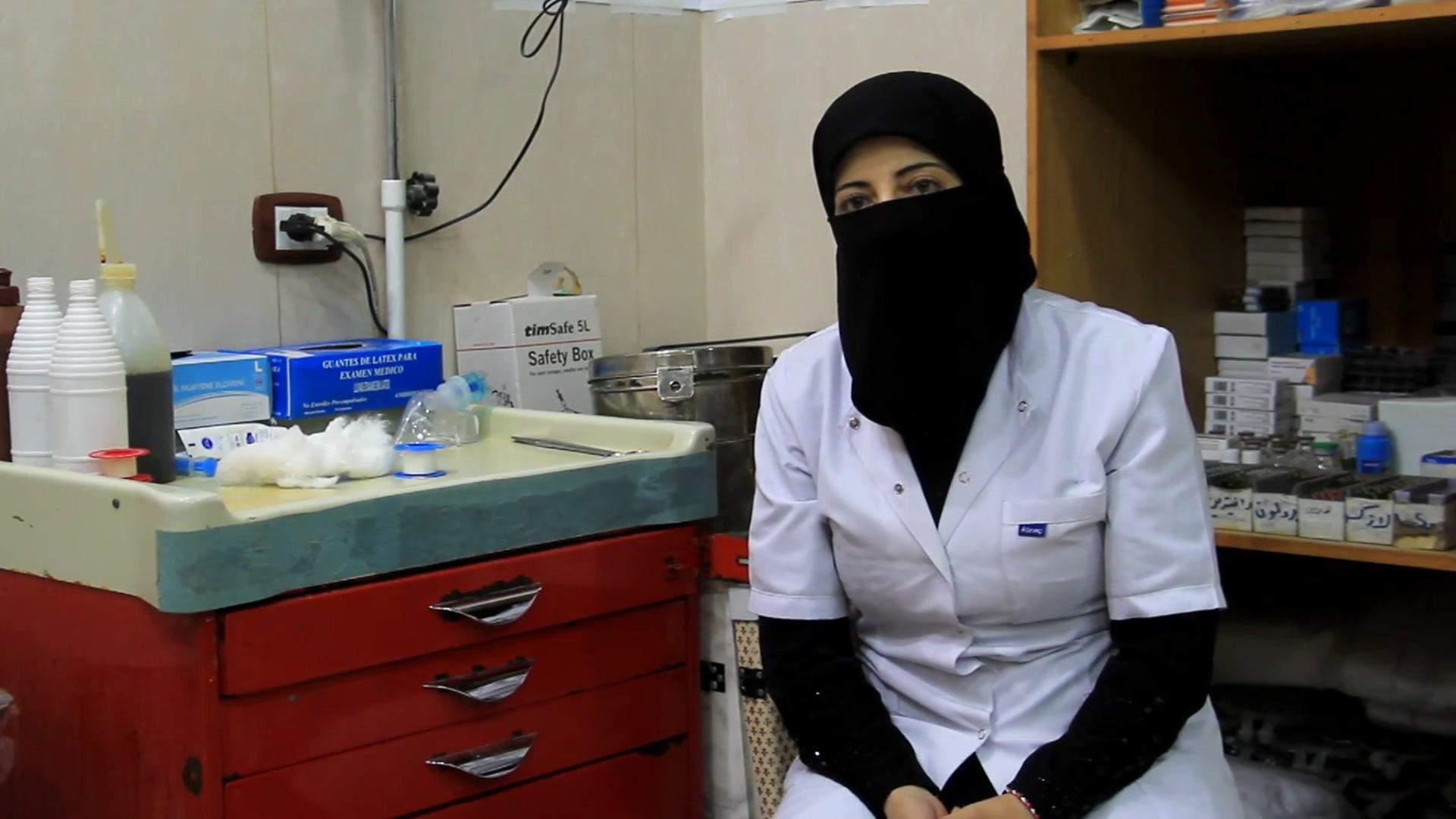
- Published22 November 2016
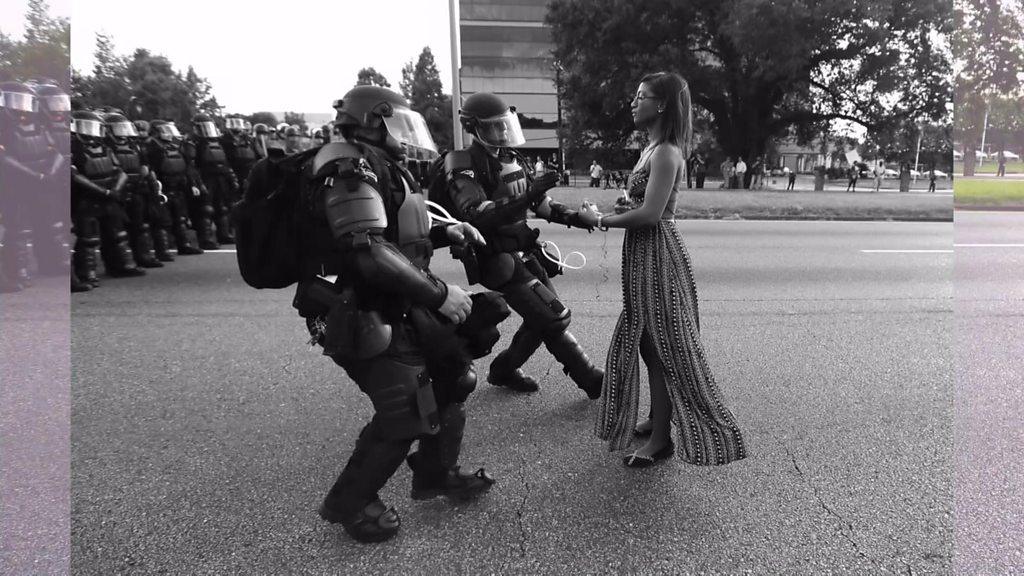
- Published22 November 2016
